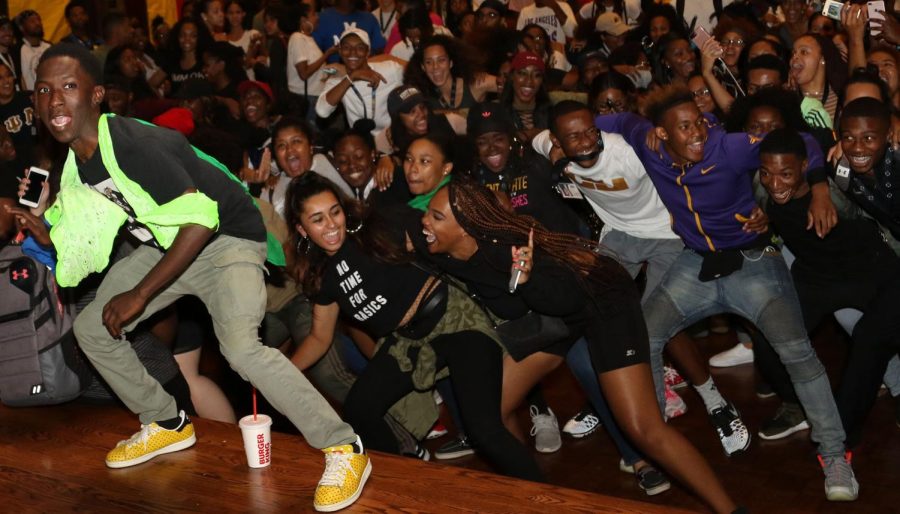Kupita Transiciones’ day 2 orientation encourages students to find cultural groove on campus
August 22, 2017
On the second night of the Kupita Transiciones (K/T) orientation, there was only one expectation: dance.
“It’s a form of bonding around here, and it’s a great way to meet people,” said Sydney Berry, a sophomore biology major and worker of the event. “It’s almost like a party.”
So they did. Hundreds of people of all different ethnicities grooved to the beat of hip-hop and R&B during K/T’s cultural orientation Tuesday night in the Student Center Ballroom.
Hosted by the Student Multicultural Center, K/T is designed to aid first-year and transfer African-American, Latin American, Native American and multiracial students with their transition from home to Kent State.
Along with a musical DJ was an inflatable course, bounce house, cotton candy and popcorn. African-American fraternities like Alpha Phi Alpha and Phi Beta Sigma performed their own dance moves in an effort to recruit new members.
K/T, formed 30 years ago, is a free, four-day orientation that offers people of different ethnicities insight into their heritage, along with the opportunity to meet people of similar backgrounds.
Forming these friendships are important, said Talea Drummer, the director of the Student Multicultural Center.
“What (the center is) seeing in a lot of data and research (is) that people who fit into these cultures graduate at lower rates. Not people (who aren’t) prepared, not because they are not smart, but because they feel this disconnection that they are coming to a place they do not know,” Drummer said. “While DKS and FYE are great and helpful, this is almost like an extra nudge for those who may not feel at home.”
Some first-year students expressed feelings of nervousness once they moved in, scared of appearing different from Kent’s predominantly white student body.
“I decided to do this orientation because I figured it would be a new way to meet people like me on campus,” said Sha’Nyia Jackson, a freshman speech pathology and audiology major. “I at first was scared that I would stick out.”
But as the music turned on, fears and differences seemed to leave themselves at the door.
“It’s empowering to see my people come together in this college setting,” said Giselle Harris, a freshman criminology and justice studies major. “(African- Americans) are stereotyped as lazy, which is not true. We just want the opportunity to do good.”
Rachel Duthie is the features editor, contact her at [email protected].












